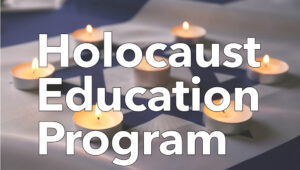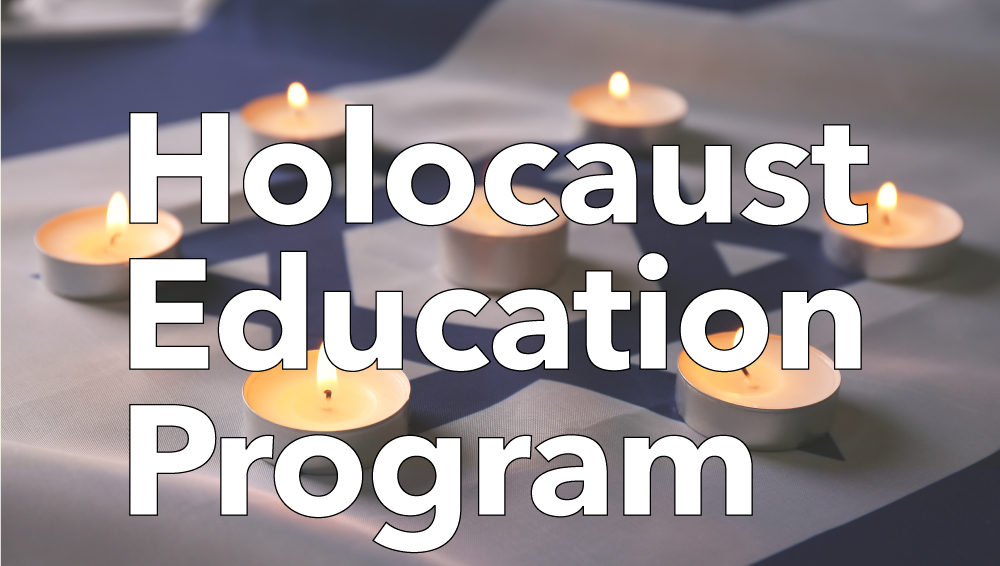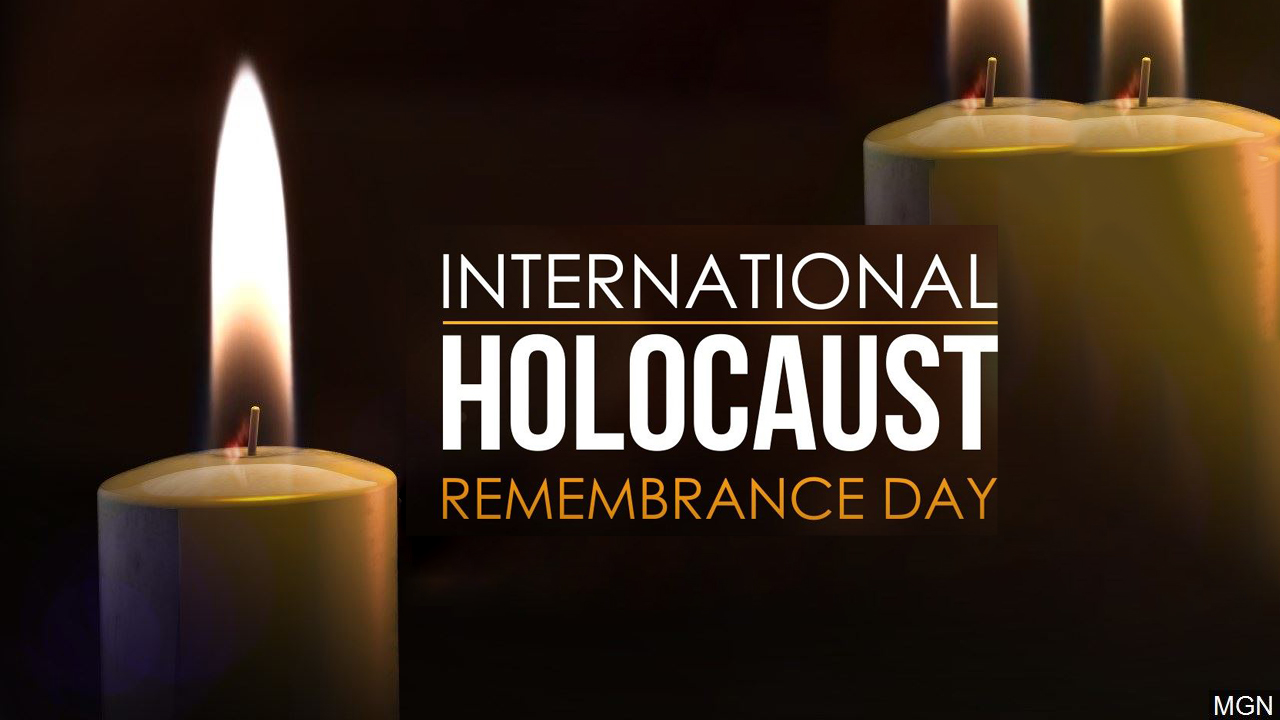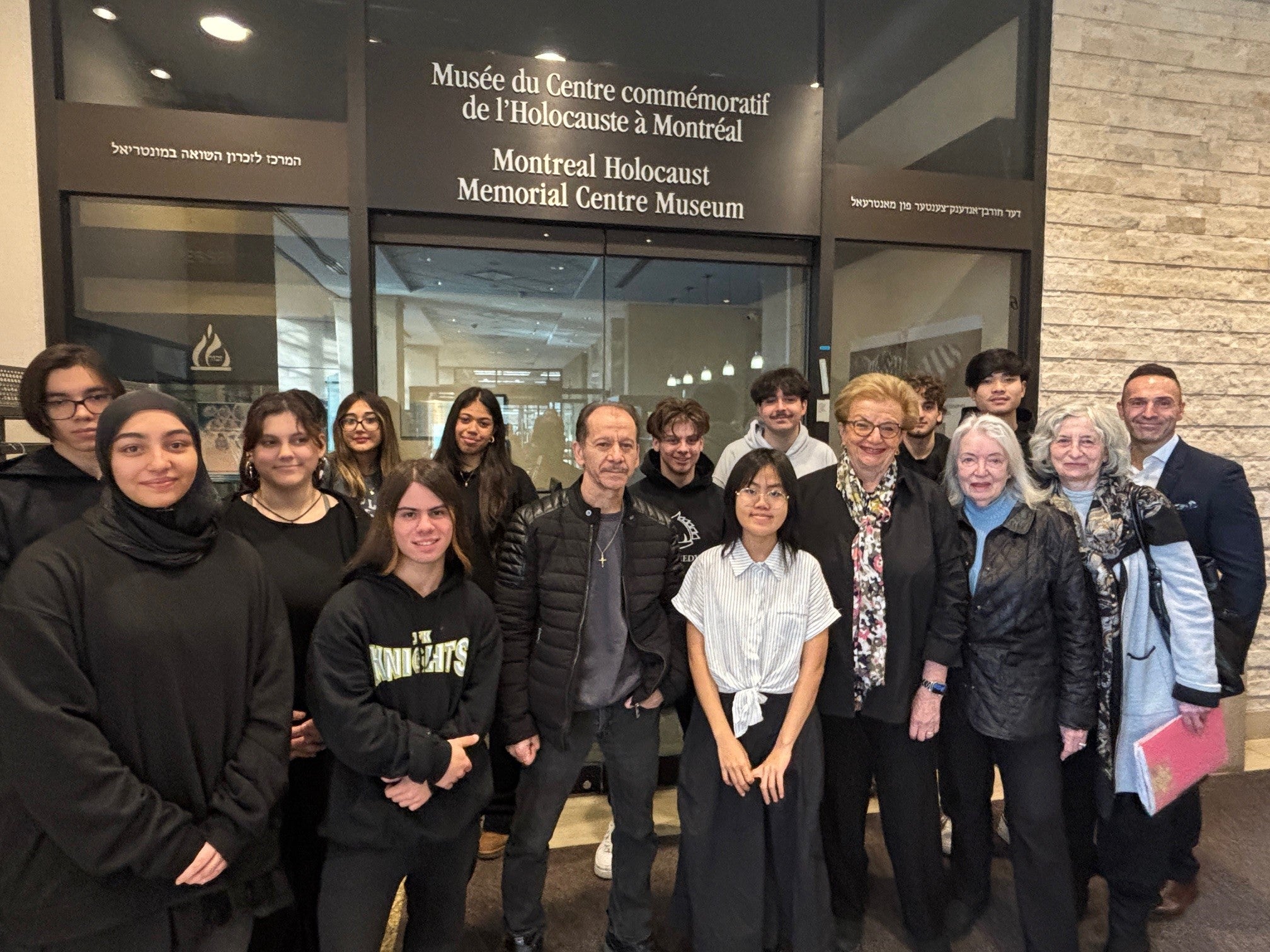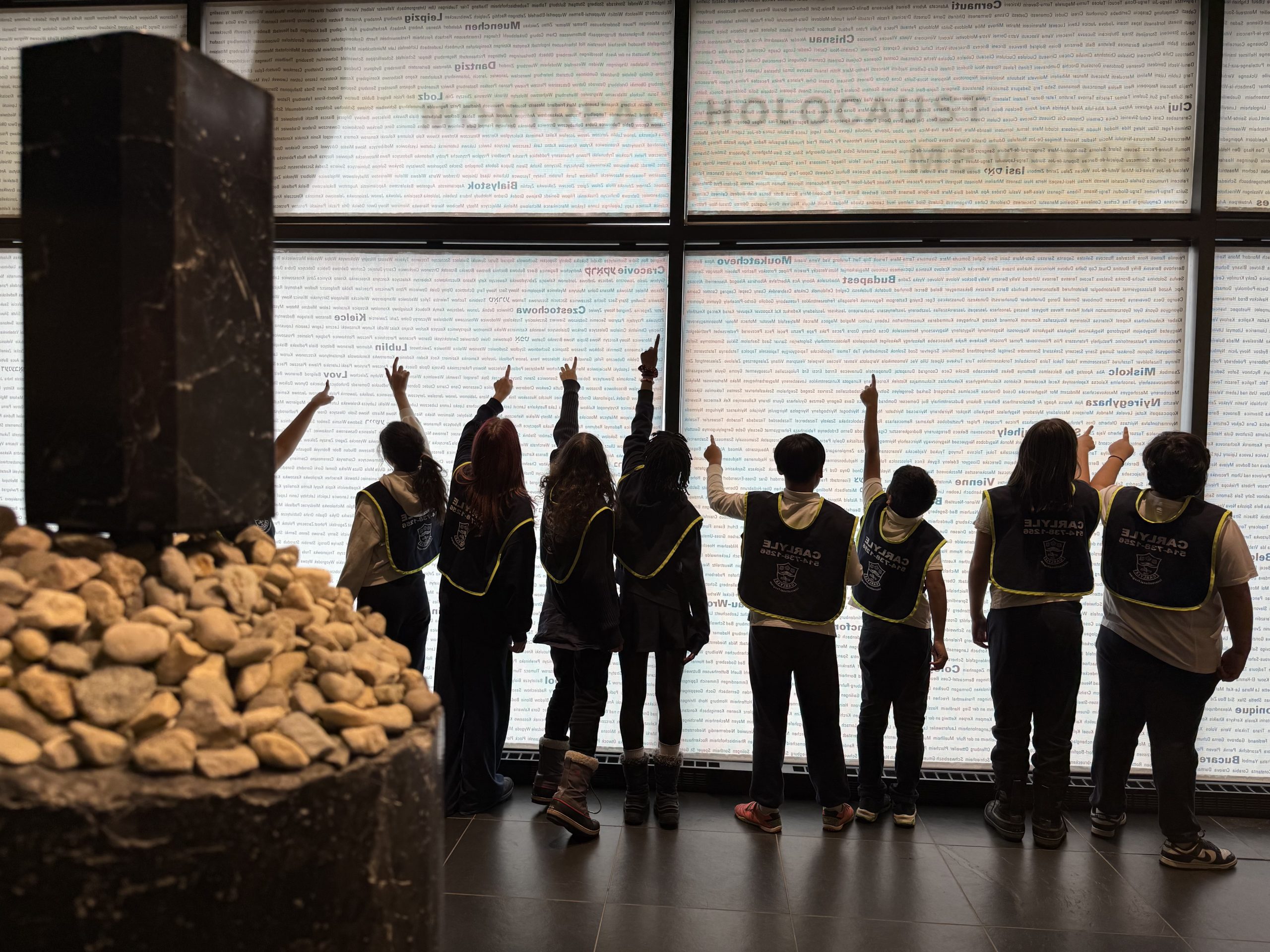Students examine yellow stars and other artifacts, at a recent visit to the Montreal Holocaust Museum. (Credit: Vadim Daniel, MHM)).
Federation CJA gave $50,000 to Montreal’s English school board for museum visits and teacher training.
By: Joel Ceausu – January 10, 2025
For many Quebec students, the Holocaust is a remote concept, one which is barely connected to their lives or worldviews.
That’s problematic, says Marcy Bruck, communications director of the Montreal-based Foundation for Genocide Education. In some schools she says, “they might just read Anne Frank and that’s it,” even though “Grade 6 is an excellent entry point” for more profound learning.
Ontario announced last year it would make Holocaust education mandatory starting in Grade 6, expanding it in Grade 10 history next fall to link the Holocaust to extremism and antisemitism, with additional teacher training. In November 2023, Alberta also made Holocaust education mandatory in social studies, following British Columbia’s announcement to include it in the K-12 curriculum next school year.
In Quebec, the Foundation for Genocide Education and others continue to lobby for greater space in the curriculum. “Our position is clear,” said foundation president Heidi Berger. “We believe strongly that this education is more important than ever, in light of the alarming rise in antisemitism in Canada since the Oct. 7 attack by Hamas on Israeli civilians, and that it must be made a mandatory part of the school curriculum. Learning this history develops critical thinking and empathy and promotes respect for diversity.”
Last year, the foundation surveyed 200 Canadian secondary social science and history teachers, and found that 72 percent believe there is greater urgency for it, “yet only 50 percent said their students are knowledgeable on the subject,” added Berger, “and more worrying, only 46 percent of teachers in Quebec said education on the Holocaust and other genocides is currently included in their school’s curriculum.”
Quebec City’s assertion is that it is addressed in existing courses. Ministry spokesperson Esther Chouinard told The CJN “the concept of genocide” is studied in three high school social sciences programs. “First, the concept is integrated into the History and Citizenship Education program in the first cycle (grades 7 and 8),” specifically with content such as ‘Auschwitz’ or the ‘Nuremberg Laws’, then in the 20th Century History program in Cycle 2 (grades 10 and 11) in the theme of crises and conflicts. Genocides are also studied in the Contemporary World program she says, which aims “to lead students to grasp the complexity of today’s world and open up to the diversity of societies that make it up by studying different problems and issues of the contemporary world, including tensions and conflicts.”
The call for mandatory Holocaust education is growing, as school boards and educators find ways to incorporate it into existing curricula. At the English Montreal School Board, Quebec’s largest board, age-appropriate materials have been taught for years, using visits to the Montreal Holocaust Museum (MHM), speakers, and lessons integrated into Language Arts, History, and Art. On Oct. 3, 2023, the board formally asked the education ministry to make it mandatory, EMSB chair Joe Ortona telling The CJN a year later “if they don’t do it, we will.”
Last month, Federation CJA gave a $50,000 grant to the EMSB to continue and bolster its Holocaust education program. “Given the climate of antisemitism in the world and Montreal at this time,” stated Federation CJA president Yair Szlak in a release, “we believe this is an opportune moment to ensure that high school students, in particular, are properly educated about what happened in the Holocaust and the roots of antisemitism.”
